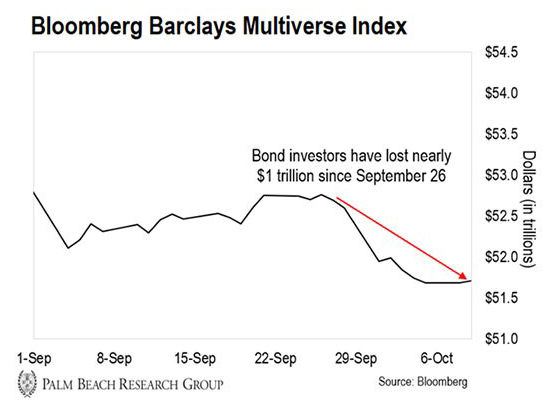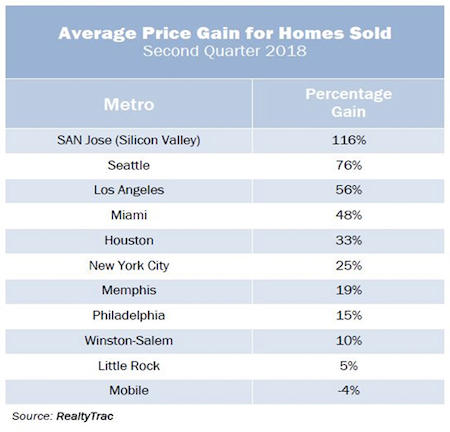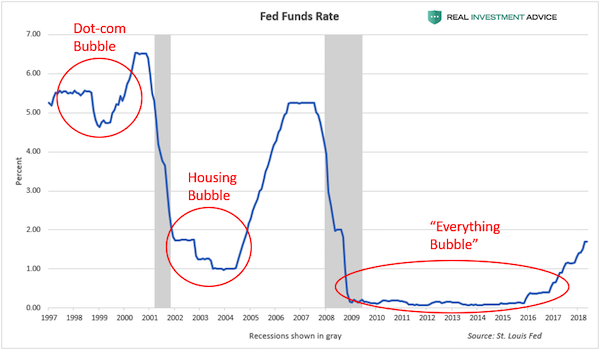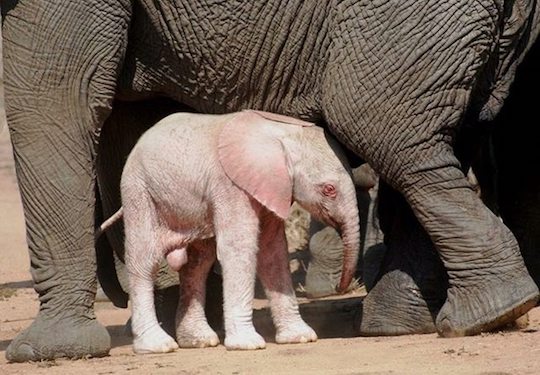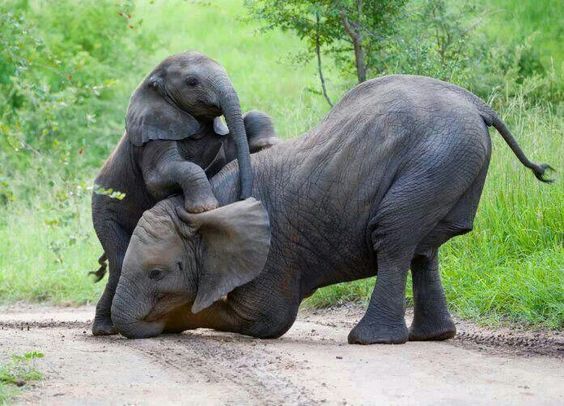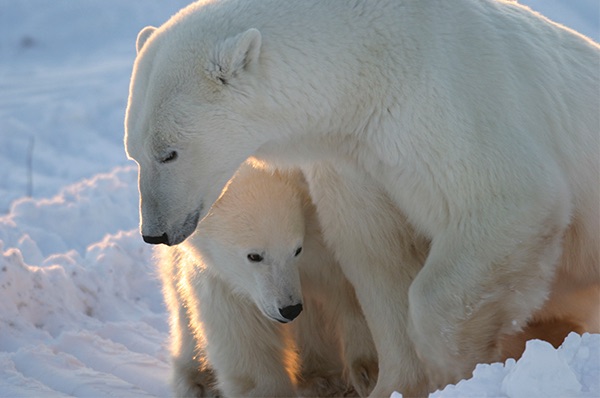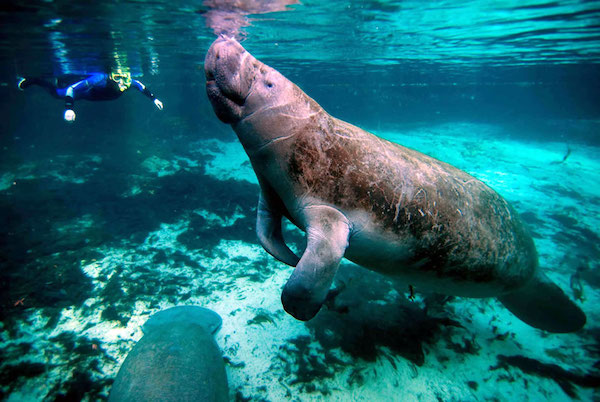
Wassily Kandinsky Moscow II 1916

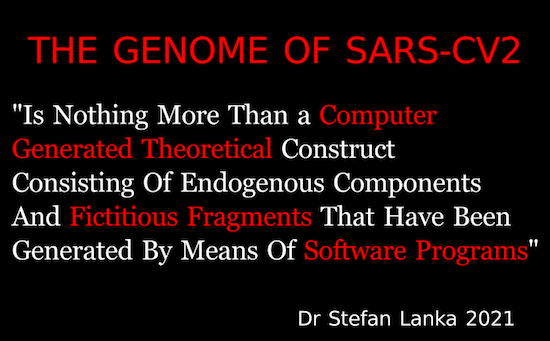

Vaccines and infections
Horrifying if true… pic.twitter.com/BBAZXfmTk9
— Heidegger (@heidegger79) June 16, 2021

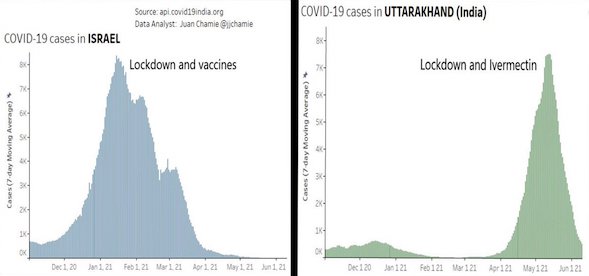

Gene therapy after all? Talk about scary. And if this doesn’t do it, try watching Dr. Fleming.
• Human Cells Can Write RNA Sequences Into DNA (STD)
In a discovery that challenges long-held dogma in biology, researchers show that mammalian cells can convert RNA sequences back into DNA, a feat more common in viruses than eukaryotic cells. Cells contain machinery that duplicates DNA into a new set that goes into a newly formed cell. That same class of machines, called polymerases, also build RNA messages, which are like notes copied from the central DNA repository of recipes, so they can be read more efficiently into proteins. But polymerases were thought to only work in one direction DNA into DNA or RNA. This prevents RNA messages from being rewritten back into the master recipe book of genomic DNA. Now, Thomas Jefferson University researchers provide the first evidence that RNA segments can be written back into DNA, which potentially challenges the central dogma in biology and could have wide implications affecting many fields of biology.
“This work opens the door to many other studies that will help us understand the significance of having a mechanism for converting RNA messages into DNA in our own cells,” says Richard Pomerantz, PhD, associate professor of biochemistry and molecular biology at Thomas Jefferson University. “The reality that a human polymerase can do this with high efficiency, raises many questions.” For example, this finding suggests that RNA messages can be used as templates for repairing or re-writing genomic DNA. Together with first author Gurushankar Chandramouly and other collaborators, Dr. Pomerantz’s team started by investigating one very unusual polymerase, called polymerase theta. Of the 14 DNA polymerases in mammalian cells, only three do the bulk of the work of duplicating the entire genome to prepare for cell division.
The remaining 11 are mostly involved in detecting and making repairs when there’s a break or error in the DNA strands. Polymerase theta repairs DNA, but is very error-prone and makes many errors or mutations. The researchers therefore noticed that some of polymerase theta’s “bad” qualities were ones it shared with another cellular machine, albeit one more common in viruses — the reverse transcriptase. Like Pol theta, HIV reverse transcriptase acts as a DNA polymerase, but can also bind RNA and read RNA back into a DNA strand. In a series of elegant experiments, the researchers tested polymerase theta against the reverse transcriptase from HIV, which is one of the best studied of its kind. They showed that polymerase theta was capable of converting RNA messages into DNA, which it did as well as HIV reverse transcriptase, and that it actually did a better job than when duplicating DNA to DNA. Polymerase theta was more efficient and introduced fewer errors when using an RNA template to write new DNA messages, than when duplicating DNA into DNA, suggesting that this function could be its primary purpose in the cell.
Dr. Richard Fleming on mRNA
Dr. Richard Fleming – flabbergasting if true… pic.twitter.com/gAsaKXAkzc
— Heidegger (@heidegger79) June 16, 2021

Remind me: why did he leave?
• WHO ‘Highly Compromised’, Unfit To Lead COVID-19 Investigation – Redfield (ZH)
The World Health Organization is “highly compromised” and unfit to lead an investigation into the origins of COVID-19, according to former CDC head Robert Redfield. “Clearly, they were incapable of compelling China to adhere to the treaty agreements that they have on global health, because they didn’t do that,” Redfield told Fox News on Tuesday. “Clearly, they allowed China to define the group of scientists that could come and investigate. That’s not consistent with their role.” In March, Redfield told CNN that he doesn’t believe the natural origin theory which posits that COVID-19 jumped from a bat to a human through a yet-to-be determined intermediary species.
“I think they were highly compromised,” Redfield said of the World Health Organization (WHO), which ‘investigated’ the origins of the pandemic in what was nothing more than political theatre conducted by a highly conflicted group – one of whom, Peter Daszak of NGO EcoHealth Alliance, worked with the Wuhan Institute of Virology, and was funded to the tune of millions of dollars by Anthony Fauci’s NIH. Redfield slammed Fauci during the interview, saying that while he supports the lab-leak hypothesis, “Other individuals, Tony Fauci, for example, would say that he prefers to support that it evolved from nature.” “Now, why would that be?” asked Redfield, adding that “sometimes scientists when they bite into a bone on a hypothesis, it’s hard for them to move on.” “I guess if I’m disappointed about anything about the early scientific community it’s that there seemed to be lack of openness to pursue both hypotheses,” he continued.

“..I was finally able to connect with a Green Bay doctor that provided my wife real treatment — Ivermectin and other support prescriptions. Within an hour of taking Ivermectin, her headaches were gone..”
• Sen. Johnson Shares Letter From Grateful Constituent About Ivermectin (JTN)
Sen. Ron Johnson’s name was invoked on Monday’s episode of The Late Show with Stephen Colbert during a segment in which Jon Stewart indicated that he thinks the COVID-19 pandemic emerged from a lab in Wuhan, China. “I think we owe a great debt of gratitude to science. Science has in many ways helped ease the suffering of this pandemic, which was more than likely caused by science,” Stewart said. “There’s a novel respiratory coronavirus overtaking Wuhan, China, what do we do? Oh, you know who we could ask? The Wuhan novel respiratory coronavirus lab. The disease is the same name as the lab.” The Wuhan Institute of Virology is located in Wuhan, China. During the segment Colbert invoked the name of Republican Sen. Ron Johnson of Wisconsin: “And how long have you worked for Senator Ron Johnson?” Colbert asked.
“This is not a conspiracy,” Stewart said. Johnson tweeted on Tuesday that he enjoyed the pair’s discussion on the show and the lawmaker shared a letter from a constituent who had written to say that Ivermectin greatly helped his wife who had suffered significantly with COVID-19. “@jonstewart @StephenAtHome enjoyed your Late Show Wuhan virus discussion. Since I was mentioned, let me share this email I got from a constituent. Open minds can save lives,” Johnson tweeted. “I am writing today to thank you for your leadership in Wisconsin as it relates to COVID and alternative treatments. My wife and I watched Dr. Pierre Kory testify before the Senate Committee about ivermectin, Dec. 8, 2020, and we were utterly dumbfounded that this treatment was not readily available as treatment and prevention to the general public,” the constituent wrote.
The letter explained that the woman later became ill with COVID-19 in May and suffered significant symptoms. “Her case was quite severe; she will report that she has never experienced the severity of headaches and body aches in her lifetime as well as severe nausea and high temperatures,” the letter noted. “As the days progressed, she grew so weak that she was not able to walk without assistance.” “As her symptoms worsened, I remembered the hearing you hosted and Dr. Kory. Through your leadership on this issue, I was finally able to connect with a Green Bay doctor that provided my wife real treatment — Ivermectin and other support prescriptions. Within an hour of taking Ivermectin, her headaches were gone,” the person told Johnson.
Nasal-spray Ivermectin for C19
Nasal-spray Ivermectin for C19
RCT published in "Int. Journal of Nanomedicine" (https://t.co/rGk3ikccaB)
Results:
✔️5.3% and 24.6% PCR+ in IVM and CTRL group, respectively (RR=0.22, p=0.004)
✔️ Much shorter duration of fever, dyspnea, cough, anosmia in IVM group (p=0.0001) pic.twitter.com/LYAegcgO62— Massimaux (@masimaux) June 15, 2021

Less than zero then?
• Biden Aides Lower Expectations Ahead Of Putin Summit (NYP)
The White House on Tuesday lowered expectations as President Biden arrived in Geneva, Switzerland, for his summit with Russian President Vladimir Putin — with a senior Biden administration official telling reporters they are “not expecting a big set of deliverables” from the Wednesday talks. Biden’s own tone changed ahead of the meeting when he downplayed past descriptions of Putin as a “killer” who has “no soul” and told reporters Monday at the NATO summit in Belgium that Putin actually is a “worthy adversary” who is “bright” and “tough.” White House officials for weeks said Biden will seek to forge a new understanding with Putin that would allow for a more predictable US-Russia relationship. And Putin aides told reporters they still believe there may be a joint statement.
Biden and Putin are expected to arrive at the meeting site in Geneva around 1 p.m. local time Wednesday. The senior US official said meetings could last four to five hours, but that there will be “no breaking of bread.” Then Putin, followed by Biden, are expected to give solo press conferences, the official said. The lack of a joint press conference will allow Biden to avoid embarrassing moments that make him appear weak or hypocritical. Putin aides suggested he will advocate for the “human rights” of Capitol rioters during the summit. The senior US official said “nothing is off the table” for the talks, which are expected to include discussion of recent cyberattacks against Colonial Pipeline and JBS Foods by criminals suspected of living in Russia.
Biden has struggled during press interactions on his first foreign trip, which also included stops in the UK and Belgium, with lengthy pauses and saying he must stop talking lest he “get in trouble” with his press handlers. The Geneva summit is expected to kick off with an initial meeting between Biden and Putin. Secretary of State Antony Blinken, Russian Foreign Minister Sergey Lavrov and translators also will be in the room, the senior US official said. There’s scheduled to be a brief press availability when Biden and Putin first sit down — though on Monday, the White House scrapped a similar “pool spray” at the start of Biden’s meeting with Turkish autocrat Recep Tayyip Erdogan, leaving frustrated US reporters dependent on Turkey’s government for information.
[..] Lavrov said ahead of the talks that Putin is prepared to flip the script on Biden if he brings up sensitive issues, such as human rights including the case of jailed opposition leader Alexei Navalny, who last year survived poisoning attempts. “We will be ready to answer the questions that the American side will raise. This also applies to human rights,” Lavrov said. “For example, we are following with interest the persecution of those persons who are accused of the riots on January 6 this year.”

“..the G7’s economic output barely registers as 30% of the global total.”
• Empire Of Clowns Versus Yellow Peril (Escobar)
It requires major suspension of disbelief to consider the G7, the self-described democracy’s most exclusive club, as relevant to the Raging Twenties. Real life dictates that even accounting for the inbuilt structural inequality of the current world system the G7’s economic output barely registers as 30% of the global total. Cornwall was at best an embarrassing spectacle – complete with a mediocrity troupe impersonating “leaders” posing for masked elbow bump photo ops while on a private party with the 95-year-old Queen of England, everyone was maskless and merrily mingling about in an apotheosis of “shared values” and “human rights”. Quarantine on arrival, masks enforced 24/7 and social distancing of course is only for the plebs.
The G7 final communique is the proverbial ocean littered with platitudes and promises. But it does contain a few nuggets. Starting with ‘Build Back Better’ – or B3 – showing up in the title. B3 is now official code for both The Great Reset and the New Green Deal. Then there’s the Yellow Peril remixed, with the “our values” shock troops “calling on China to respect human rights and fundamental freedoms” with a special emphasis on Xinjiang and Hong Kong. The story behind it was confirmed to me by a EU diplomatic source, a realist (yes, there are some in Brussels). All hell broke loose inside the – exclusive – G7 room when the Anglo-American axis, backed by spineless Canada, tried to ramrod the EU-3 plus Japan into an explicit condemnation of China in the final communiqué over the absolute bogus concentration camp “evidence” in Xinjiang.
In contrast to politicized accusations of “crimes against humanity”, the best analysis of what’s really going on in Xinjiang has been published by the Qiao collective. Germany, France and Italy – Japan was nearly invisible – at least showed some spine. Internet was shut off to the room during the really harsh “dialogue”. Talk about realism – a true depiction of “leaders” vociferating inside a bubble. The dispute essentially pitted Biden – actually his handlers – against Macron, who insisted that the EU-3 would not be dragged into the logic of a Cold War 2.0. That was something that Merkel and Mario ‘Goldman Sachs’ Draghi could easily agree upon.

Presented as defending your privacy …
• Bipartisan Support For A Government-backed Digital Dollar (MW)
Members of a House Financial Services Committee task force largely expressed support for experiments to create a digital form of the U.S. dollar, citing the need to keep pace with China and to enable a larger swath of the U.S. population to access the digital economy, during a hearing Tuesday morning. Neha Narula, the director of MIT’s Digital Currency Project, explained to the committee the benefits of a digital dollar, describing the U.S. electronic payment system as suffering from “high fees and limited access” because it has not evolved fast enough to keep pace with the demand for online digital payments.
Narula, whose group is collaborating with the Federal Reserve Bank of Boston to study a potential Fed-backed digital dollar, added that while private cryptocurrencies may evolve to solve these problems, they also present risks including “the immaturity of the technology and its ability to provide widely available, highly secure and scalable payment transactions.” That’s why, according to Narula, that dozens of central banks across the globe, including the European Central Bank and the People’s Bank of China, are experimenting with digital forms of their own currencies. Warren Davidson of Ohio, the ranking Republican on the task force, was quick to embrace Narula and the other panelists’ support for designing a digital dollar with consumer privacy as a major priority.
“I’m very encouraged about this dialogue…and by your passion for privacy.” Davidson told the panel. “If we get this structure right, we can really move past this sad part of American history where Americans essentially surrendered their privacy in the late 1960s, early ’70s with respect to financial matters.” Davidson was referring to the the so-called third-party doctrine, which was developed by a series of Supreme Court cases in the ’60s and ’70s and says that citizens do not have a legal right to privacy with respect to information that a person willingly gives to a third party, including banks and other financial firms. A digital dollar has the potential to protect the financial privacy in a way that private companies do not, he said.

“A minimum global corporate tax. Why not an agreement on a maximum global public spending?”
• The G7’s Reckless Commitment To Mounting Debt (Lacalle)
Historically, meetings of the largest economies in the world have been essential to reach essential agreements that would incentivize prosperity and growth. This was not the case this time. The G7 meeting agreements were light on detailed economic decisions, except on the most damaging of them all. A minimum global corporate tax. Why not an agreement on a maximum global public spending?
Imposing a minimum global corporate tax of 15 percent without addressing all other taxes that governments impose before a business reaches a net profit is dangerous. Why would there be a minimum global corporate tax when subsidies are different, some countries have different or no VAT rates (value added tax), and the endless list of indirect taxes is completely different? The G7 “commit to reaching an equitable solution on the allocation of taxing rights, with market countries awarded taxing rights on at least 20 percent of profit exceeding a 10 percent margin for the largest and most profitable multinational enterprises.” This entire sentence makes no sense, opens the door to double taxation and penalizes the most competitive and profitable companies while it has no impact on the dinosaur loss-making or poor-margin conglomerates that most governments call “strategic sectors.”
The global minimum corporate tax is also a protectionist and extractive measure. The rich nations will see little negative impact from this, as they already have their governments surrounded by large multinationals that will not suffer a massive taxation blow because subsidies and tax incentives before net income are large and generous. According to PWC’s Paying Taxes 2020, profit taxes in North America already stand at 18.5 percent but, more worryingly, total tax contributions including labor and other taxes reach 40 percent of revenues. In the EU and EFTA (European Free Trade Association), profit taxes may be somewhat smaller than in North America, but total taxation remains above 39 percent of revenues.
Some politicians mention corporate technology giants as the ones that pay no taxes and use an effective tax rate where they put together loss-making companies with those making a profit thus reaching an artificially low effective tax rate. Technology giants will not pay more under this new agreement, because their taxable base will not change, their profit and loss account will remain similar and, more importantly, the deductions on large investments, which are the cause of their apparently small tax payments, will not change either.

“..entropy or disorder can’t decrease over time..”
• New Study Proves Hawking Was Right, Black Holes Only Get Bigger (RT)
Physicists have said that they have proven, by analyzing gravitational waves from space, a theory developed by Stephen Hawking in the 1970s, which states that black holes cannot decrease in surface area over time. In a study published on Monday, scientists from Massachusetts Institute of Technology (MIT) and Cornell University shared their findings from a research project which analyzed ripples in spacetime created by two black holes that spiraled inward and eventually merged into one bigger black hole. The ripples studied were the first gravitational waves ever identified, detected by the Advanced Laser Interferometer Gravitational-Wave Observatory in 2015. Splitting the gravitational wave data into time segments before and after the black holes merged, the researchers calculated the surface areas of the black holes in both periods.
The physicists found that the surface area of the new black hole was actually greater than the two initial black holes combined. The finding confirms a prediction made by famed scientist, Stephen Hawking, in the 1970s, in which he stated that black holes cannot decrease in surface area as it mirrored a rule in physics, that entropy or disorder can’t decrease over time. Hawking’s law states that the surface area of the black hole won’t increase on its own, but when things enter it, it gains mass and correspondingly its surface area increases. While incoming objects can make the black hole spin, which decreases surface area, the size increase due to the additional mass will always be greater than the size lost to spinning.

Turley defends Assange.
• AG Merrick Garland Raises As Many Questions As He Answers (Turley)
In his testimony before Congress, Garland stressed that he intends to create new protections for the media to allow “journalists to go about their work disclosing wrongdoing and error in the government. That is part of how you have faith in the government, by having that transparency.” But what is a journalist? Does it include bloggers or citizen journalists? There is general agreement that this is a case of investigative journalism. After all, Pro Publica has won six Pulitzer Prizes and bills itself as a nonprofit investigatory group committed to exposing “abuses of power and betrayals of the public trust by government, business, and other institutions, using the moral force of investigative journalism to spur reform through the sustained spotlighting of wrongdoing.”
That sounds a tad familiar. WikiLeaks was founded as a nonprofit “to bring important news and information to the public … to publish original source material alongside our news stories so readers and historians alike can see evidence of the truth.” In 2013, WikiLeaks was declared by the International Federation of Journalists to be a “new breed of media organization” that “offers important opportunities for media organizations” through the publication of such nonpublic information. If Garland is going to implement protections for the media in the use of leaked material, he will have to address the continued prosecution of WikiLeaks founder Julian Assange by the DOJ. The Justice Department is still fighting to extradite Assange. It is using the same tactic that was used in the Rosen case by treating Assange not as a journalist but as a criminal co-conspirator.
DOJ insists that Assange played an active role in his correspondence with and advice to the hacker. Yet, Assange would not be the first journalist to work with a whistleblower who is prospectively or continuing to acquire nonpublic information. I have previously written about the Assange case as potentially the most important press freedom case in 300 years. (For full disclosure, I also advised the legal team of Julian Assange in England on our criminal justice system and the free press protections under the Constitution.) Both Pro Publica and WikiLeaks could claim that these disclosures serve the public interest. Pro Publica wanted to expose an unfair tax system. WikiLeaks wanted to expose how public figures were lying to the public on subjects ranging from foreign wars to campaign issues.
Both the rights of free speech and the free press require bright lines to flourish. For the free press, one bright line is to bar reverse engineering in leak investigations and the targeting of publishers or recipients of information in the media or Congress. Another is to require a higher showing (and higher authorization) for any searches of the records of journalists. That, however, will take us inevitably to the questions that the government and frankly some in the media have avoided for years. What is a journalist, and what to do with Julian Assange?

… and shared what he knew…
• Julian Assange: The Man Who Knew Too Much (LAP)
Millions viewed the “Collateral Murder Tape” online, as well as interviews with one of the soldiers who rescued the children – Ethan McCord recounts how it impacted him, and the wider PTSD forever wars inflict on our soldiers. In our fog of war reliable count of the hundreds of thousands of civilian casualties in Iraq and Afghanistan remains elusive. Those who prefer such dark reveals remain buried see Assange as someone to destroy. US military budgets remain on crescendo. The world’s top five arms dealers, and twelve of the top twenty-five, are American. Assange is bad for business. “Someone’s not going to like this” was predictable. Assange stepped into the crosshairs of fame, targeted by powerful disinformation systems.
Politicians and media pundits, some of the latter still joined at the hip with America’s military/intelligence/industrial complex, chimed in. Some called Assange a traitor – never mind he’s Australian – and high tech terrorist, even calling for his assassination. So dark was the picture painted that even sympathetic writers feel obliged to begin with “Whatever you think of Assange…” When Wikileaks revealed the DNC gamed the 2016 Democratic Party primaries, the punditry judged democratic derailments not newsworthy when the higher good was resistance to Trump. Media ran faster with narratives ripping Assange than questioning or correcting them.
Claiming Assange is outside publishing boundaries is a conceit that who, what, when, where, why and how requires formal training, or an official imprimatur. Never mind the international journalism awards Wikileaks quickly garnered, the uncovered bedrock for important stories that enabled accolades to news organizations building on Wikileaks revelations. A decade ago Daniel Ellsberg, who exposed government lies about the Vietnam War by leaking the Pentagon Papers, told me government’s objective going after him was a UK-styled Official Secrets Act that undermines First Amendment protections. Beyond criminalizing leaking classified materials, it would criminalize seeking and publishing them.

We try to run the Automatic Earth on donations. Since ad revenue has collapsed, you are now not just a reader, but an integral part of the process that builds this site. Thank you for your support.

Jon Stewart

Support the Automatic Earth in virustime. Click at the top of the sidebars to donate with Paypal and Patreon.




